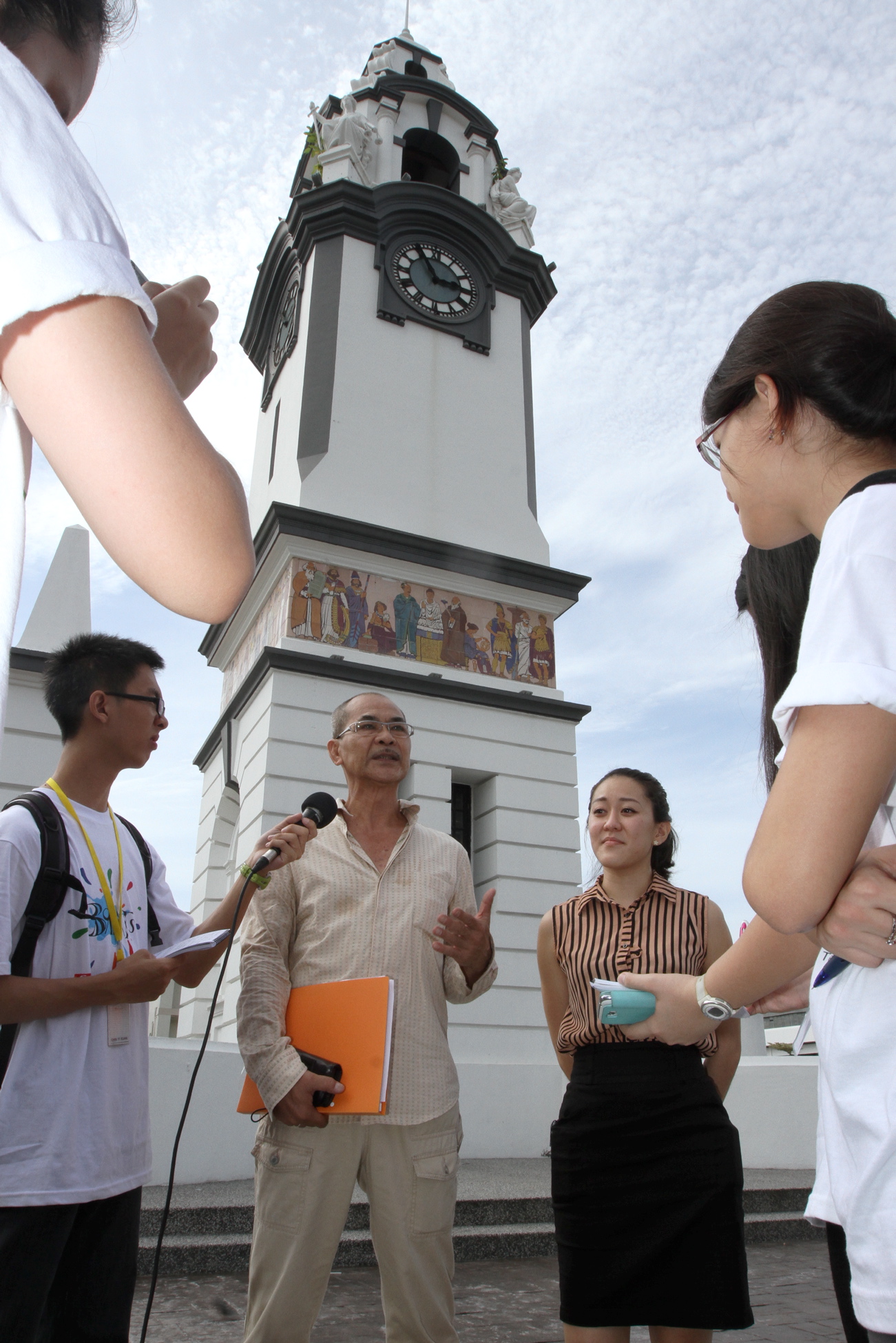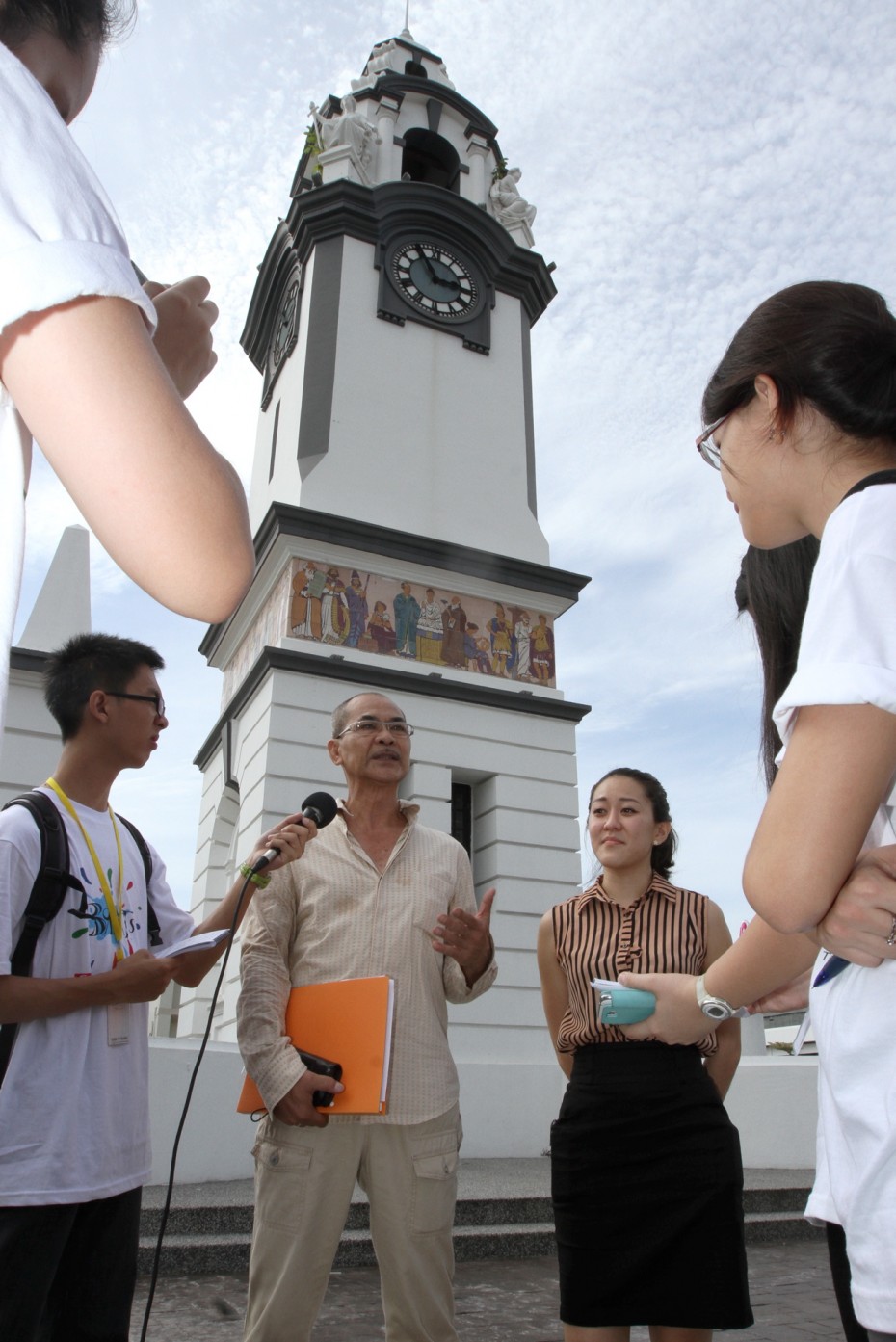
Showing the way: Perak Heritage Society president Law Siak Hong (right) and Peggy Lim (who is involved in the preservation of heritage buildings in Ipoh), gave the BRATs fascinating walking tour of historical sites throughout Ipoh city.
THEY’RE the unsung heroes of Ipoh’s heritage preservation efforts – Peggy Lim and Law Siak Hong are saving historical structures, one brick at a time.
Lim, 25, has a Bachelors degree in Chemical Engineering from Curtin University, Perth and a Masters in Commerce from the University of Western Australia. She dedicates her time to refurbishing shop houses, keeping them fully functional and relevant today. But why did she enter a profession almost entirely unrelated to her field of study?
“I grew up here. We (Lim and her parents) own 14 of these old buildings. The original owners of a row of shop houses were selling, and we decided to take the plunge,” she explained.
Among Lim’s latest projects is the repurposing of a shop house into a hotel-cum-gallery. It is bare, almost austere inside, with its modernist interior in sharp contrast to the imposing colonial facade outside.
Lim represents a new generation of Ipoh natives who are beginning to immerse themselves in the physical and cultural heritage of their city, and she works regularly with Law, the President of the Perak Heritage Society.
Law also provides guided tours of the many historical sites around Ipoh city, explaining the rich cultural background of the town.
Ironically, he notes that Sejarah (history) was his most-hated subject in school. “I failed my Form 3 exam!” he offered with a laugh.
A group of BRATs were fortunate enough to get a tour by both Law and Lim. Law walked down the streets with ease given his extensive knowledge of the place, turning around every now and then to share interesting facts with the team. He is well-known about town, often pausing to greet shopkeepers.
Along the way, he highlighted the particularly noticeable contrast between the old and new structures of the city. “Ipoh is changing; it’s trying to catch up to the rest of the world,” he pointed out.
Most shop owners inherit old shop lots from their parents. “Due to budgetary constraints, most refuse to shell out the big bucks to properly refurbish these structures and often resort to using cheap building materials, if they decide to refurbish at all,” Lim elaborated.
That’s where she and Law come in. They try to convince these sceptical owners of the cultural significance of these buildings.
“It’s like wearing clothes,” Lim said. “You want to wear something that’s presentable to others, right? It’s kind of the same thing with buildings. You have to dress them right. And it’s even more important with these buildings, as they’re going to be here for a long time.”
These old buildings, added Hong, are what truly carries the identity of the city for generations to come.








Tell us what you think!